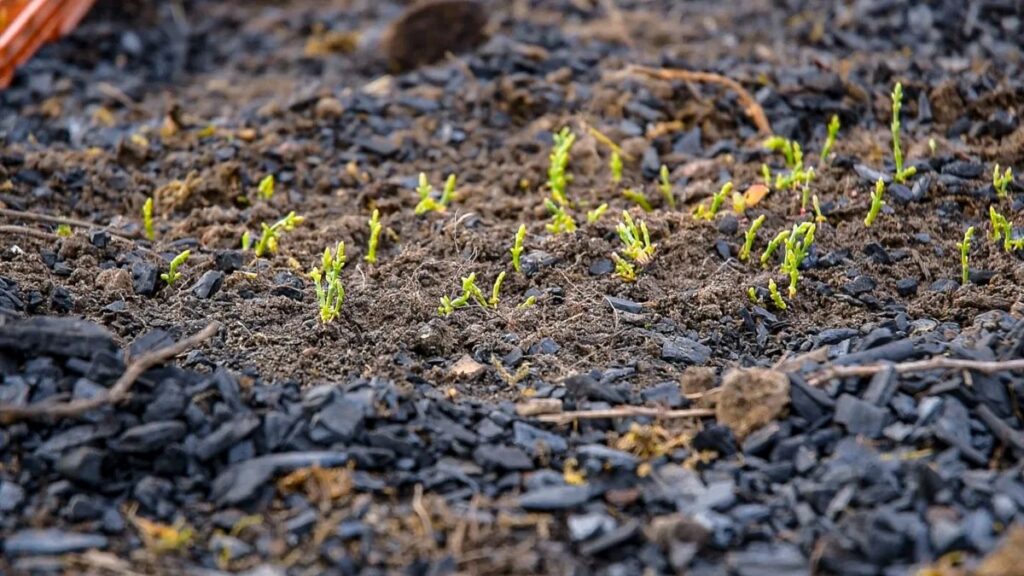Lancashire trial uses biochar to capture atmospheric carbon on farmland
22nd February 2023
In partnership with North-West based Positive Biocarbon, Lancashire County Council is trialling the use of biochar to remediate soils and capture atmospheric carbon for thousands of years.

The project, which sees Lancashire County Council (CC) become one of the first local authorities to use biochar, is being conducted on a total of six hectares of farmland at two different sites: Midgeland Farm near Blackpool and Chisnall Hall near Chorley.
Biochar can effectively store carbon in the soil for thousands of years and is recognised as a natural-based solution by the UN Intergovernmental Panel on Climate Change (IPCC). It’s created through a controlled process called pyrolysis that converts organic biomass waste such as plant trimmings or forestry cuttings into stable soil carbon.
Each tonne of biochar has the capacity to lock in three tonnes of atmospheric CO2, with carbon being permanently stored when sequestered in soils or building materials. Using this approach, Lancashire CC could lock as much CO2 into the ground in 10-13 years as a broadleaf woodland of the same size could in 50 years.
In addition to capturing carbon, biochar also helps improve soil quality and increase moisture retention, which in turn enhances the productivity and fertility of the land, helping plants remove more CO2 from the atmosphere.
Biochar consultant James MacPhail said: “This new ground-breaking initiative should create a catalyst across the UK for other local authorities to adopt best practice in soil remediation.
“It is well documented that offsetting alone cannot combat climate change; we need to look at solutions for capturing carbon too.”
Mr MacPhail added that not only can biochar store atmospheric carbon for extended periods of time, it can also turn previously unproductive land fertile again.
“Biochar has been used to great effect for years on remediating soils that are contaminated with heavy metals such as cadmium, lead and zinc, dangerous chemicals, such as arsenic, pesticides and organic pollutants.
“Crucially once the sponge-like structure of the biochar absorbs the pollutants, these aren’t released again,” he explained. “The immobilisation of the contaminants through biochar can lock up 500 times more than soil alone — due to its high surface area, high cation exchange capacity and long residence time in the soil.”
The pilot project aims to reduce the county’s carbon footprint as part of continued efforts to reach the government’s net zero target by 2050. It is part of a wider environmental strategy by Lancashire CC, which plans to use compost from garden waste collections to plant a one-hectare broadleaf woodland at Chisnall Hall.
Councillor Shaun Turner, cabinet member for environment and climate change, said in a video of Lancashire CC that the council is also looking to turn trees that fell because of ash dieback into biochar, so the carbon that is already contained is not lost back in to the atmosphere.
“Innovative schemes like this are a key part of our plans to make Lancashire a cleaner, greener country,” he added.
A recent pilot project examining the benefits of biochar also revealed that samples treated with pine-based biochar experienced a 44% increase in tree biomass compared with control samples. What’s more, some tree species with biochar added to their potting mix demonstrated increased resistance to stem cankers caused by water mould.
